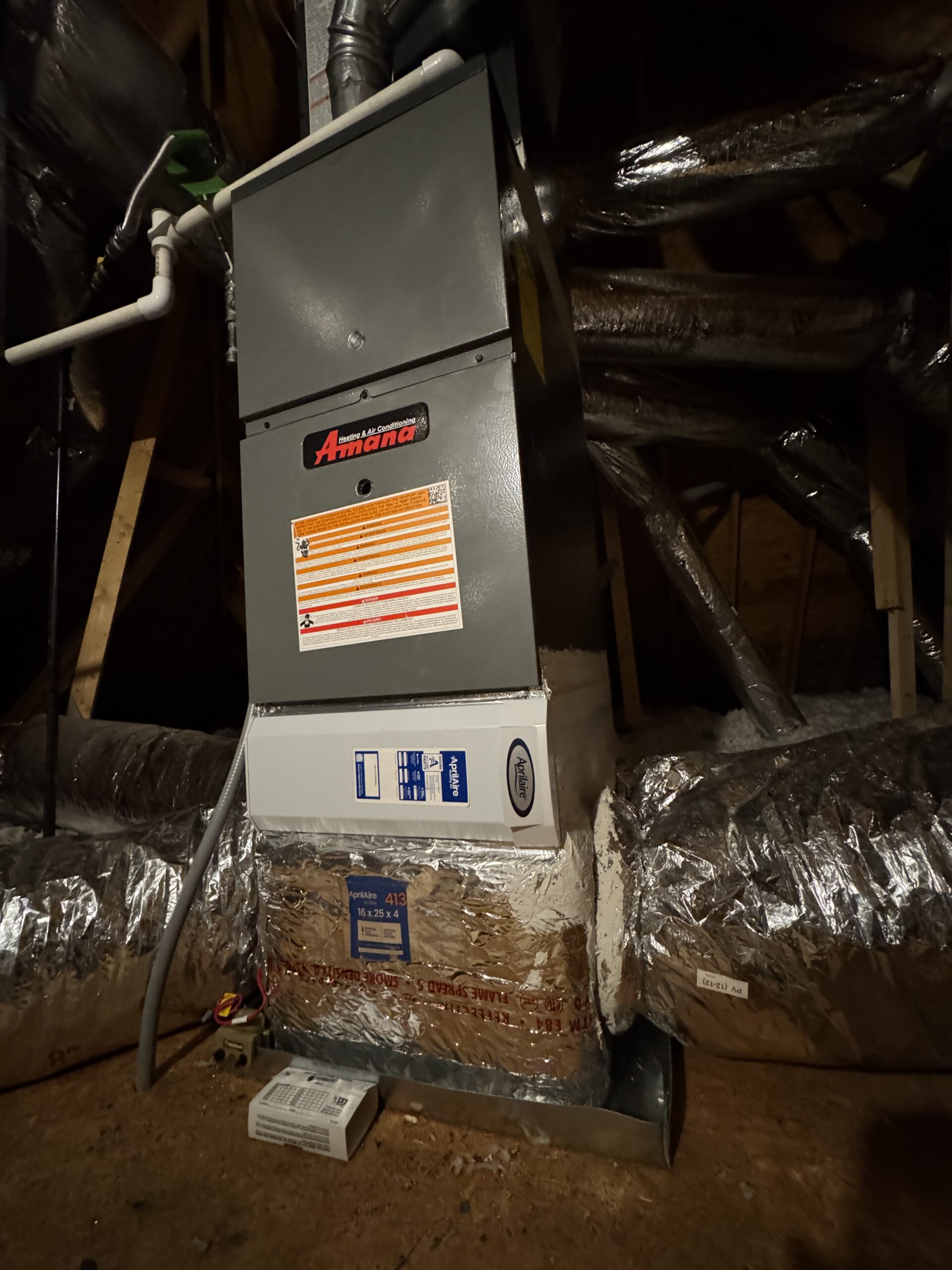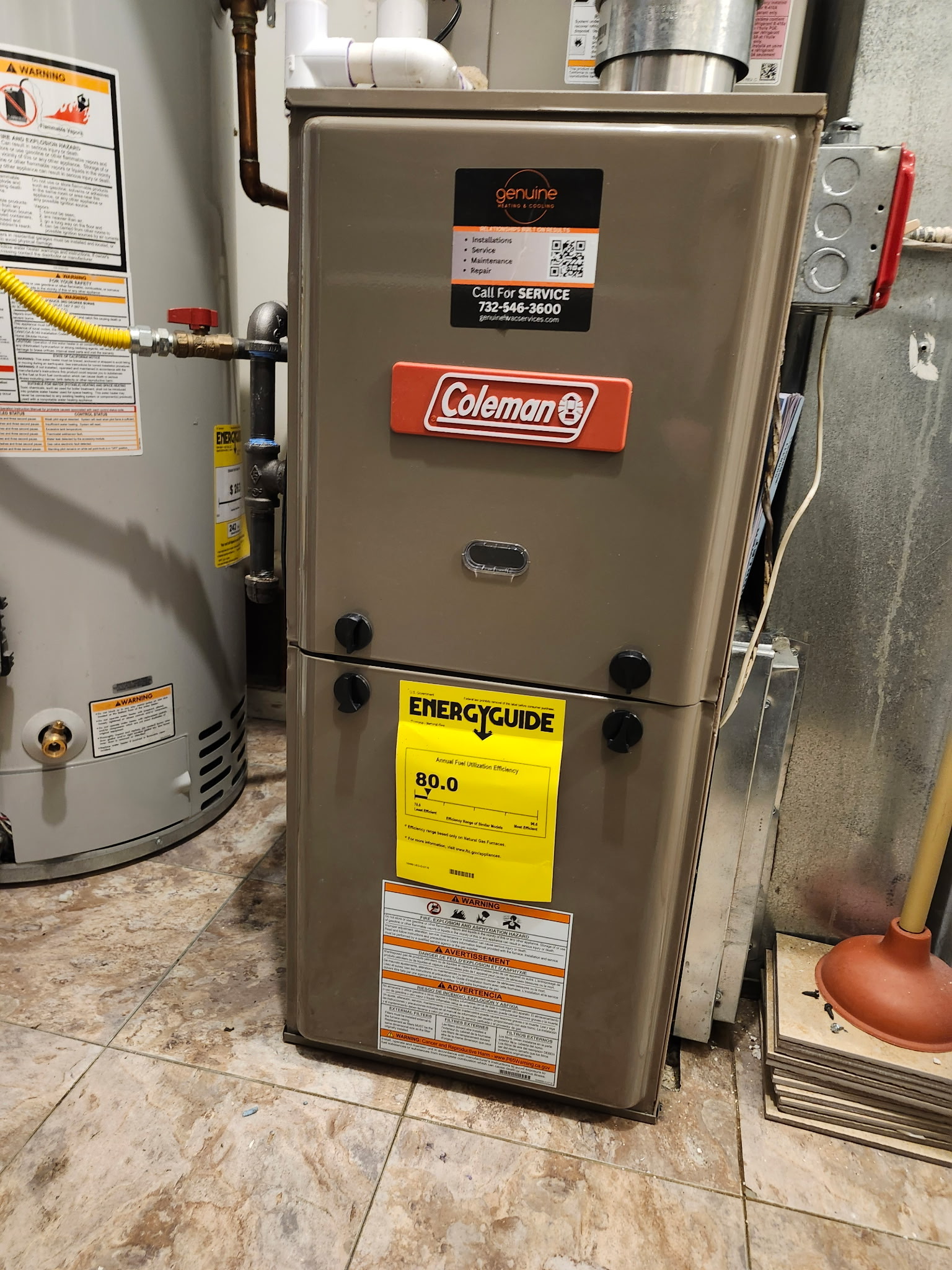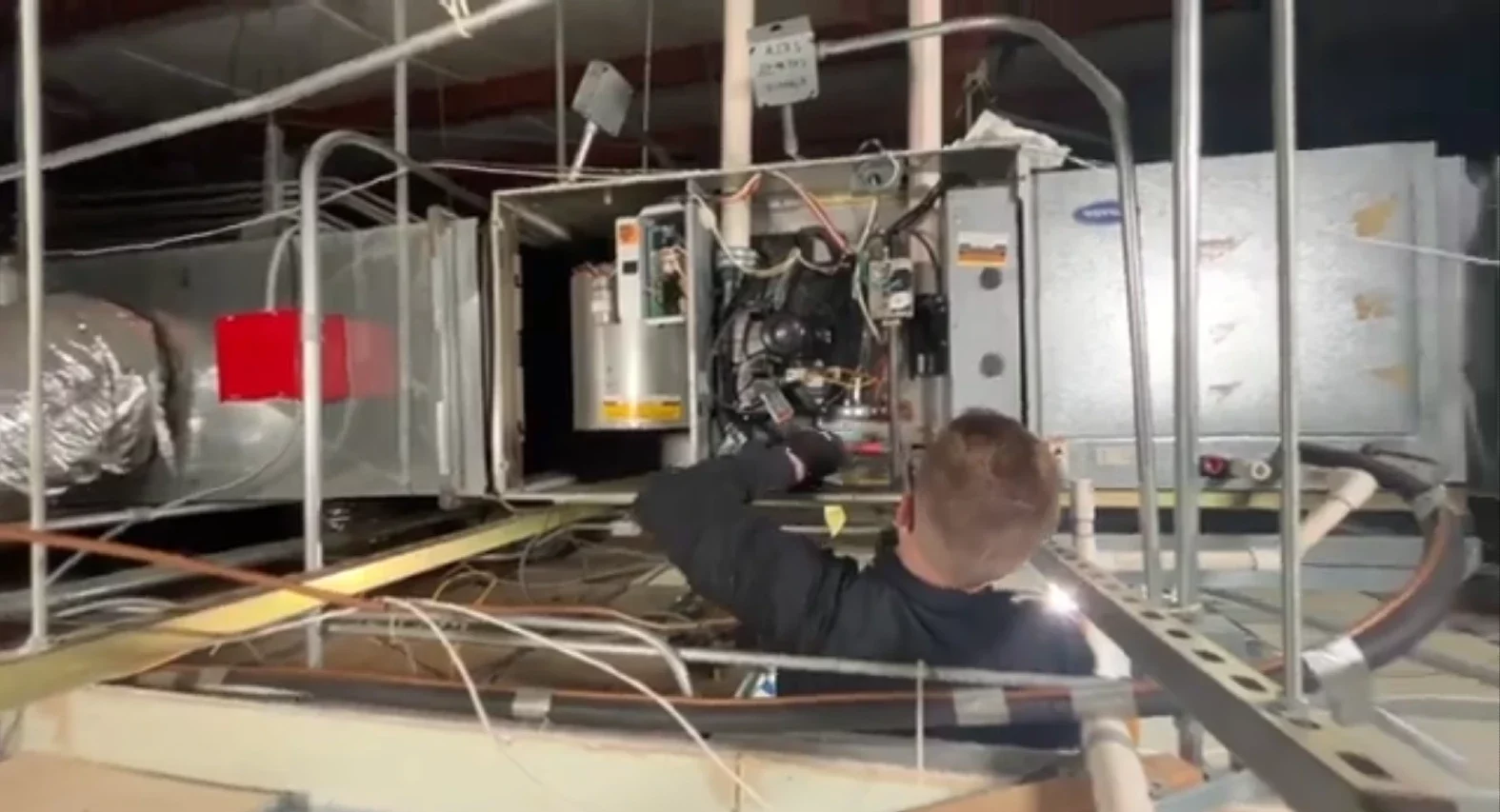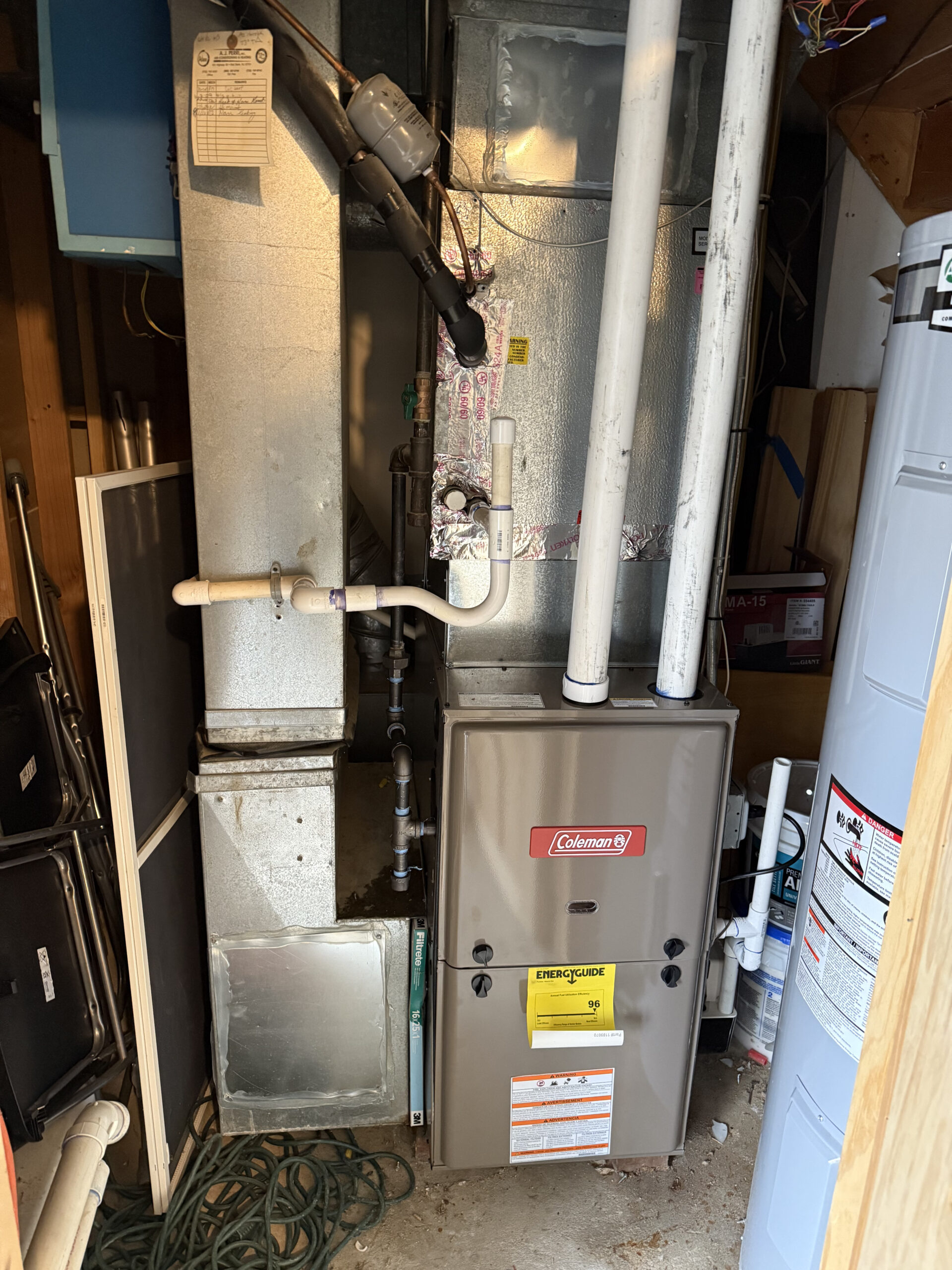
When you head to the hardware store for a new HVAC filter, the shelves are packed with options: MERV 8, MERV 11, MERV 12, even MERV 13. The packaging promises cleaner air, allergy relief, and longer system life. But do higher MERV ratings always equal better results?
The truth is more nuanced. Choosing the right filter for your furnace or AC isn’t just about grabbing the highest number on the box. In fact, going too high can actually hurt your system. In this guide, we’ll cover what MERV ratings really mean, the pros and cons of higher-rated filters, and how to make the best choice for your home.
What is a MERV Rating?
MERV stands for Minimum Efficiency Reporting Value. It’s a standardized scale (1–20) that measures how effectively an air filter captures particles of different sizes.
- Low MERV (1–4): Captures large particles like dust bunnies, lint, and carpet fibers.
- Medium MERV (5–8): Captures dust, mold spores, and pet dander.
- High MERV (9–13): Captures fine particles like smoke, bacteria, and pollen.
- Very High MERV (14+): Typically used in hospitals, labs, and clean rooms — not residential homes.
Most homeowners choose filters in the MERV 8–11 range, balancing air quality with system performance.
Benefits of Higher MERV Filters
So why do people consider upgrading to higher MERV ratings like 11, 12, or even 13?
1. Cleaner Indoor Air
Higher MERV filters capture smaller particles, including allergens and pollutants that standard filters miss. This can help households with:
- Seasonal allergies
- Asthma or respiratory conditions
- High sensitivity to dust or pet dander
2. Protecting Your Equipment
A filter’s job isn’t just for your lungs — it’s also for your HVAC system. A good filter prevents dust and debris from clogging your blower, coil, and ducts, extending system life.
3. Healthier Home Environment
With more time spent indoors, air quality matters. A higher MERV filter can help reduce pollutants that contribute to respiratory irritation and illness.
The Downsides of Too High a MERV Rating
But higher isn’t always better. Many homeowners are surprised to learn that using a filter with too high a rating can cause problems.
1. Restricted Airflow
The higher the MERV, the denser the filter. Denser filters can restrict airflow through your system, making it harder for your blower motor to move air.
2. System Strain
Restricted airflow increases static pressure in the ductwork. This forces your blower motor to work harder, potentially leading to:
- Reduced energy efficiency
- Higher utility bills
- Overheating in heating mode
- Coil freeze-ups in cooling mode
- Premature motor or part failure
3. Shorter Filter Life
High-MERV filters capture more particles, which means they clog faster. A filter that says “good for 90 days” may actually need to be changed every 30 days in a dusty home with pets or kids.
4. Unnecessary Expense
If your home doesn’t have major allergy or air quality concerns, paying more for a high-MERV filter might not give you noticeable benefits compared to a standard filter.
Can a Higher MERV Filter Damage My Furnace or AC?
The short answer: yes, it can — if the filter isn’t sized correctly.
The Problem with 1-Inch Filters
Most standard furnaces use 1-inch pleated filters. These are the most restrictive when upgraded to higher MERV ratings. Many HVAC pros recommend not going higher than MERV 11 on a 1-inch filter.
The Solution: Bigger or Thicker Filters
If you want higher MERV ratings, a thicker filter (4–5 inches) or a filter cabinet with more surface area can handle it. The extra pleats give the air more space to move through, reducing restriction.
Why System Design Matters
Every furnace and AC is designed for a certain amount of airflow. Too much restriction can cause:
- Shortened equipment life
- Comfort issues (hot/cold spots)
- Safety problems (like high heat exchanger temps)
The only way to be certain is with a static pressure test — a tool your HVAC technician uses to measure how well air flows through your system.
Best MERV Ratings for Different Homes
Here’s a quick breakdown for homeowners:
- MERV 5–8:
Best for most households. Affordable, reliable, and changed monthly. - MERV 9–11:
Good balance for homes with pets, kids, or mild allergies. Helps reduce dust and dander. - MERV 12–13:
Better filtration for serious allergies or respiratory concerns — but requires a thicker filter and proper system setup. - Above MERV 13:
Rarely recommended for residential systems unless the home has special ductwork or medical needs.
Common Myths About HVAC Filters
“The higher the MERV, the longer it lasts.”
Not true — higher filters clog faster because they catch more particles.
“Filters are air purifiers.”
False — your filter protects your HVAC system first. Air cleaning is a secondary benefit.
“A dirty filter works better than a clean one.”
Partially true: a slightly dirty filter can capture particles more effectively, but too much dirt restricts airflow and damages your system.
The right filter isn’t about grabbing the biggest number on the box — it’s about balancing clean air with healthy airflow. For most homes, MERV 8–11 offers the best mix of comfort, efficiency, and protection.
If you’re considering higher MERV ratings, ask your HVAC professional to check your system’s static pressure and filter cabinet size. That way, you’ll get cleaner air without risking damage to your furnace or AC.


Ultimate Guide to Furnace Repair Issues in New Jersey Homes

Do Higher HVAC Filters Help or Hurt Your System?

Oil Furnace Won’t Turn On? 8 Common Reasons and How to Fix Them

Electric Furnace Won’t Turn On? Troubleshooting Guide for NJ Homes

